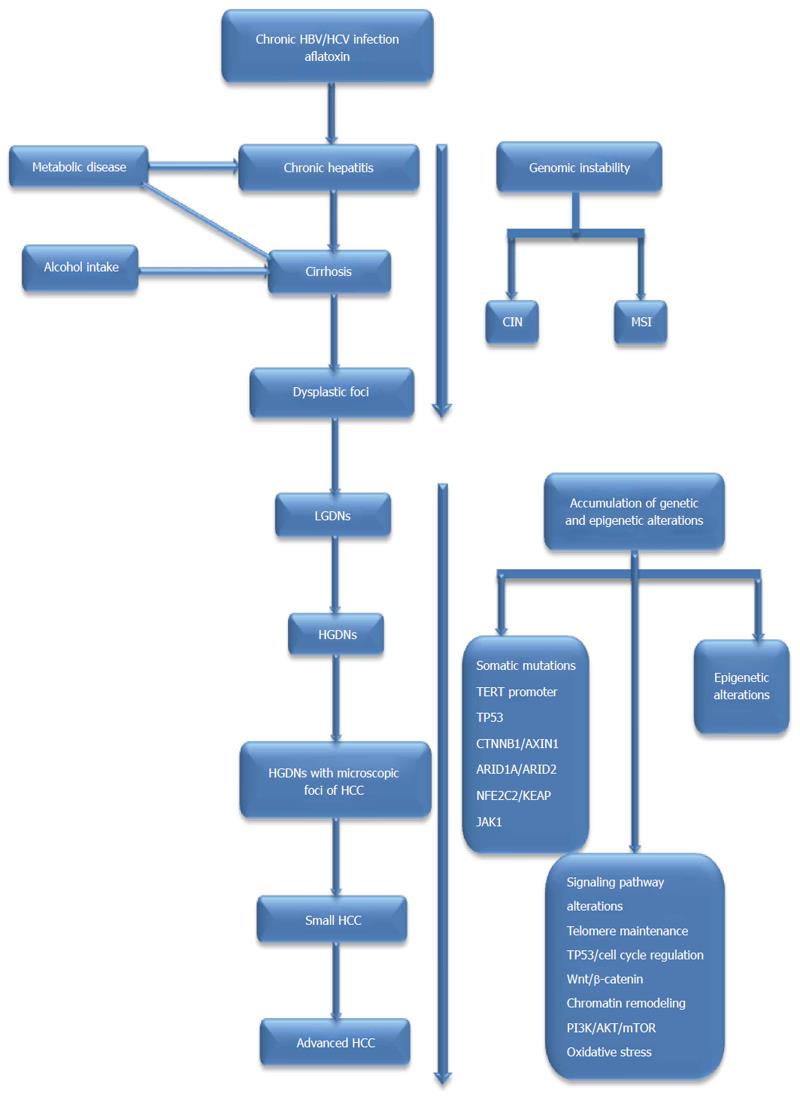©The Author(s) 2016.
World J Gastroenterol. Nov 7, 2016; 22(41): 9069-9095
Published online Nov 7, 2016. doi: 10.3748/wjg.v22.i41.9069
Published online Nov 7, 2016. doi: 10.3748/wjg.v22.i41.9069
Figure 1 The impact of genetic alterations on hepatocarcinogenesis.
Genetic alterations in hepatocarcinogenesis are connected to underlying etiologies, such as HBV, HCV, dietary AFB1 exposure and alcohol intake. Genomic instability accumulates slowly in a limited number of genes during the early preneoplastic stage, such as the development of cirrhosis, and the accumulation of genetic and epigenetic alterations accelerates throughout the formation of preneoplastic lesions, such as LGDNs and HGDNs, and into the development HCC; HBV: Hepatitis B virus; HCV: Hepatitis C virus; AFB1: Aflatoxin B1; LGDN: Low grade dysplastic nodule; HGDN: High grade dysplastic nodule; HCC: Hepatocellular carcinoma; CIN: Chromosomal instability; MSI: Microsatellite instability; TERT: Telomerase reverse-transcriptase; ARID1A: AT-rich interactive domain-containing protein 1A; ARID2: AT-rich interactive domain-containing protein 2; NFE2L2 or NRF2: Nuclear factor erythroid-derived 2-like 2; KEAP1: Kelch-like ECH-associated protein 1; JAK1: Janus kinase 1; RPS6KA3: Ribosomal protein S6 kinase polypeptide 3.
- Citation: Niu ZS, Niu XJ, Wang WH. Genetic alterations in hepatocellular carcinoma: An update. World J Gastroenterol 2016; 22(41): 9069-9095
- URL: https://www.wjgnet.com/1007-9327/full/v22/i41/9069.htm
- DOI: https://dx.doi.org/10.3748/wjg.v22.i41.9069













